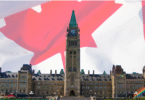Canada is one of the top choices for people looking to move to a new country. It offers a high quality of life, a strong economy, and a welcoming, inclusive society. Many people move to Canada each year for better job and education opportunities, safety, and the chance to settle permanently in a country that respects diversity and human rights.
But before you can move to Canada, you need to understand how the immigration and visa process works. Canada has a clear and detailed system that often changes to match the country’s goals. Following the visa rules is very important. If you forget a document, make a mistake on a form, or don’t give enough proof, your application could be delayed or rejected. So, it’s important to follow all the steps carefully and correctly.
This article outlines ten essential visa requirements that form the foundation of a successful migration process.
Completed Visa Application Forms
Filling out the right visa application forms is a basic but important step in moving to Canada. There are different ways to immigrate, and each one has its forms and rules. These include work permits, study permits, permanent residency programs like Express Entry and the Provincial Nominee Programs (PNPs), and temporary visas for visitors.
Applicants need to choose the immigration pathway that matches their reason for moving to Canada. Each option has its own set of forms. For example, students fill out the IMM 1294 form, while people applying through Express Entry first create an online profile and later fill out the IMM 0008 form for permanent residency. You can find all these forms on the official Immigration, Refugees and Citizenship Canada (IRCC) website at www.canada.ca.
Filling out the right forms needs close attention. All the information must be correct, complete, and match the documents you provide. If there are differences—like wrong dates, names, or job details—it can cause delays or even lead to a refusal. Applicants must also make sure they sign the forms and submit them on time.
Proof of Financial Support
Showing that you have enough money is an important part of most Canadian visa applications. You must prove that you can take care of yourself and any family members coming with you, without needing help from the government. This rule helps make sure you can pay for basic needs like housing, food, transport, and, if needed, school fees.
The type of visa you apply for will determine what kind of proof of funds you need. For example, students must show they have enough money to pay for tuition and living costs for at least one year. Express Entry applicants under the Federal Skilled Worker Program must meet a minimum amount of savings, which changes every year and depends on how many family members they have. People applying for a work permit might not need to show proof of funds if they already have a valid job offer from a Canadian employer.
You can prove you have enough money by showing documents like recent bank statements, fixed deposit slips, pay slips, tax records, or official letters from your bank. If someone else is sponsoring you, you must include a signed sponsorship letter, proof of their income, and documents that show your relationship with them. All financial documents must be easy to read, real, and translated into English or French if they’re in another language.
Language Proficiency Test Results
Showing your ability to speak English or French is an important part of most Canadian immigration programs. Canada wants immigrants who can communicate well because it helps them fit in and find work. Applicants must take official language tests and get the minimum scores required by the immigration program they apply for.
To prove English skills, Canada accepts test results from IELTS General Training and CELPIP – General. For French speakers, Canada accepts results from TEF Canada or TCF Canada tests.
Each immigration program sets different minimum language scores. For example, Express Entry under the Federal Skilled Worker Program needs a Canadian Language Benchmark (CLB) level 7. This means meeting specific scores in reading, writing, listening, and speaking. Other programs, like the Canadian Experience Class or Provincial Nominee Programs, may ask for higher or lower scores depending on the job and province.
Educational Credentials Assessment (ECA)
An Educational Credentials Assessment (ECA) is needed for many Canadian immigration programs, especially under Express Entry. The ECA checks if your foreign education matches Canadian standards. This assessment helps you earn points for education in the Comprehensive Ranking System (CRS) and proves your eligibility for programs like the Federal Skilled Worker Program.
Not everyone needs an ECA. You must get one if you studied outside Canada and apply through a program that checks your education. But if you finished your degree or diploma in Canada, you don’t need an ECA.
To complete the assessment, you must choose an organization designated by Immigration, Refugees and Citizenship Canada (IRCC). Approved bodies include:
- World Education Services (WES)
- Comparative Education Service (CES)
- International Credential Assessment Service of Canada (ICAS)
- International Qualifications Assessment Service (IQAS)
- Medical Council of Canada (MCC) – for physicians
- Pharmacy Examining Board of Canada (PEBC) – for pharmacists
Job Offer (If Applicable)
A valid job offer can make your Canadian visa application stronger, especially for work permits, Express Entry, and some Provincial Nominee Programs (PNPs). It is not required for every immigration path, but having a job offer can give you an advantage or meet specific rules for some programs.
For work permits, a job offer is required. Most employers need to get a Labour Market Impact Assessment (LMIA) from Employment and Social Development Canada (ESDC). This shows that no Canadian citizen or permanent resident can do the job. In Express Entry, a valid job offer with a positive LMIA can give you extra points in the Comprehensive Ranking System (CRS), increasing your chances of getting an Invitation to Apply (ITA).
Applicants must include several key documents with their application:
- A formal offer letter detailing the job title, duties, salary, and start date
- A copy of the LMIA and LMIA number (if applicable)
- A signed employment contract outlining the terms and conditions of the role
To make sure your job offer meets immigration rules, the employer must be real and legally registered in Canada. Immigration officials may check the business’s legitimacy. So, it’s important to work with a trustworthy employer. Watch out for fake job offers or agencies that ask for money to help you get a job.
Medical Examination
A medical exam is required for many people applying to move to Canada. It helps make sure they do not have health problems that could harm public health or put too much pressure on Canada’s healthcare system.
You must undergo a medical exam if you are applying under one of the following categories:
- Permanent residence (all applicants)
- Work or study permits for occupations in health services, child care, primary or secondary education, and agriculture
- Temporary residence if you have lived in a country with a high incidence of communicable disease for six months or more within the past year
The medical examination typically includes:
- A review of your medical history
- A physical examination
- Chest X-rays
- Blood tests and urine analysis
These tests check for illnesses like tuberculosis, syphilis, and other contagious diseases. Sometimes, extra tests are needed depending on your age or health history.
You must take the medical exam with a doctor approved by Immigration, Refugees and Citizenship Canada (IRCC). Only doctors on the official IRCC list can do the exam and send the results. Exams from other doctors will not be accepted.
Police Clearance Certificate
A Police Clearance Certificate (PCC) is an important part of many Canadian visa applications. It helps immigration officers check your background and make sure you are not a security risk.
You must submit a police certificate if you are applying for:
- Permanent residence
- Certain work or study permits
- Spousal sponsorships and other family-based applications
You must get this document for every country or place where you have lived for six months or more in a row since you turned 18. It checks if you have a criminal record or any history that could affect your ability to enter Canada.
To obtain your police clearance:
- Identify the correct issuing authority for each country where you’ve resided.
- Follow the specific application process, which may include fingerprinting, background checks, or in-person interviews.
- Make your request early, as processing times can vary widely between countries—some may take weeks or even months to issue the certificate.
Ensure that each certificate:
- Is officially issued and authenticated
- Is translated into English or French (if applicable), along with a certified translation
- Includes your full legal name, date of birth, and passport number
If you cannot get a certificate from a country, you should write an explanation and show proof that you tried to get it. Immigration, Refugees and Citizenship Canada (IRCC) will look at these cases one by one.
Proof of Relationship (for Family Sponsorship)
When applying to sponsor family members to Canada, you must provide clear and trustworthy proof of your relationship. This rule makes sure the sponsorship is real and not fake or dishonest.
Required Documents
The specific documents depend on the type of relationship being established. Key documentation includes:
- Spouses: A valid marriage certificate, wedding photos, joint ownership of property or financial accounts, and communication records.
- Common-law partners: Proof of at least one year of cohabitation, such as shared lease agreements, utility bills, joint bank statements, and affidavits from friends or family.
- Children: Birth or adoption certificates showing the relationship between parent and child.
- Other family members (such as parents or grandparents): Birth records, national IDs, or government-issued family relationship documents.
Supporting Evidence
In addition to legal documents, applicants are encouraged to provide supporting materials that reflect an ongoing and genuine relationship. These may include:
- Photos taken together over time
- Travel itineraries and boarding passes
- Social media screenshots or messaging history
- Letters, cards, or emails exchanged between family members
All documents not in English or French must be accompanied by a certified translation.
Proof of Intent to Leave (for Visitor Visa)
When you apply for a Canadian visitor visa, you must show that your stay is temporary. You need to prove you will leave Canada before your visa expires. Immigration officers check this to make sure people do not stay longer than allowed.
Importance of Demonstrating Temporary Intent
Canadian immigration officers must believe that you will follow the rules of your visitor visa. If you cannot show strong connections to your home country or plans after your visit, your visa may be denied. Showing good reasons to return helps prove your visit is genuine.
Types of Supporting Documents
To prove your intent to leave, submit documentation that confirms personal, professional, or economic obligations in your home country. Examples include:
- Employment verification: A job letter indicating your current position, salary, and approved leave period.
- Property or asset documents: Deeds, lease agreements, or ownership papers showing you have financial or residential ties.
- Family ties: Birth certificates of children, marriage certificates, or evidence of caregiving responsibilities.
- Return travel documents: Confirmed flight tickets showing your intended departure from Canada.
- Educational enrollment: Proof that you are currently enrolled in a course or program that requires your return.
All documents should be recent, clear, and, where necessary, translated into English or French by a certified translator.
Frequently Asked Questions
Where can I access the official Canadian visa application forms?
You can find all application forms and detailed guidance on the official Immigration, Refugees and Citizenship Canada (IRCC) website.
Do all applicants need an Educational Credential Assessment (ECA)?
Only applicants applying through programs like Express Entry (Federal Skilled Worker or Canadian Experience Class) or PNPs that assess foreign education must submit an ECA.
What is a Labour Market Impact Assessment (LMIA), and do I need one?
An LMIA is a document issued by Employment and Social Development Canada (ESDC) that confirms a Canadian employer’s need to hire a foreign worker. You need an LMIA if you’re applying for a work permit based on a job offer, unless exempt under specific agreements.
Can I hire a consultant to help with my visa application?
Yes, but ensure they are authorized by the College of Immigration and Citizenship Consultants (CICC).
Conclusion
Applicants should plan carefully and act on time. Delays or mistakes in forms and documents can cause problems or lead to refusal. If needed, get help from certified immigration consultants or lawyers to avoid errors. Always use the official Immigration, Refugees and Citizenship Canada (IRCC) website for the latest rules and updates. Immigration policies can change, so staying informed is key to success.






